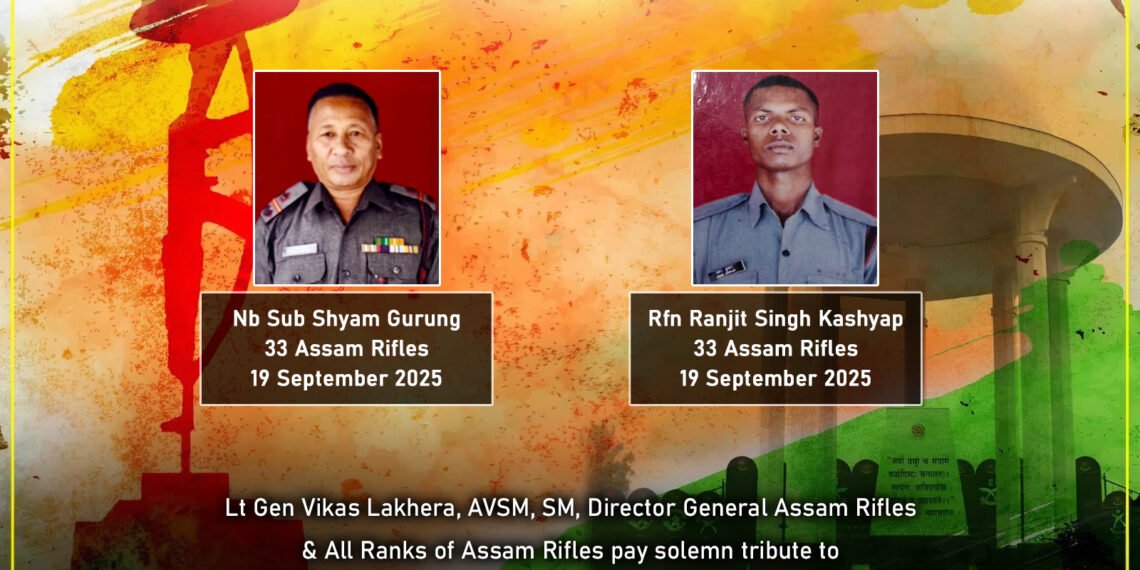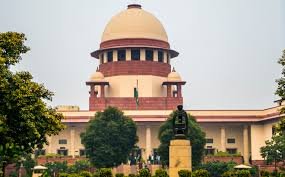Security analysts warn insurgent groups are regaining ground in Manipur’s valley after AFSPA was lifted in 2022 amid political pressure.
Imphal, September 20, 2025
The daylight ambush on an Assam Rifles convoy in Nambol Sabal Leikai, Bishnupur district, on September 19 that killed one personnel and left several others critically injured has reignited the debate on extending the Armed Forces (Special Powers) Act (AFSPA) to Manipur’s valley districts. Security analysts, retired officials, and political observers argue that the attack highlights the growing influence of valley-based insurgent outfits and exposes gaps in the state’s counter-insurgency framework.
Why AFSPA is Back in Focus
Currently, AFSPA remains applicable only in Manipur’s hill districts, where Kuki-Zo insurgent groups have long been under ceasefire agreements with the Centre. The law was withdrawn from Imphal East and west, and parts of Thoubal and Bishnupur districts in April 2022, following sustained pressure from civil society groups and political leaders who cited improving law-and-order conditions and alleged excesses committed under the Act.
READ: Analysis: Assam Rifles Ambush Bears Signature of Valley-based Outfits
However, the Bishnupur ambush has shifted the narrative. Valley-based groups such as the People’s Liberation Army (PLA), United National Liberation Front (UNLF), and emerging militias like Arambai Tenggol continue to mount high-profile attacks, primarily in Meitei-dominated areas. The targeting of Assam Rifles—seen as both a counter-insurgency force and a protector of hill communities—has added urgency to calls for restoring AFSPA in the valley.
Security Establishment’s Concerns
Senior retired officers argue that the removal of AFSPA from valley districts has emboldened insurgent groups. “The ambush at Nambol demonstrates planning, operational capability, and clear intent to challenge state authority. Without AFSPA, security forces have fewer operational tools to conduct proactive intelligence-led operations in the valley,” said a retired brigadier who once commanded troops in Manipur.
Security agencies emphasize that AFSPA allows for quicker operational deployment, search-and-arrest powers, and greater flexibility in tackling ambushes, extortion networks, and arms smuggling.
In a strongly worded statement, the Kuki Liberation Army-Letkholun (KLA-L) claimed that the ambush “starkly highlights the potential consequences of the state government’s decision to exclude the Armed Forces Special Powers Act (AFSPA) from specific jurisdictions within Imphal Valley, notably in Meitei-dominated areas.”
The group’s press release further warned: “The Nambol incident is a stark reminder of the potential consequences of this policy shift, which may undermine the efficacy of counter-insurgency operations and destabilize the delicate security balance in North-East India.”
READ: Deadly Ambush in Manipur: Two Assam Rifles Jawans Killed
The statement also argued that selective application of AFSPA fosters perceptions of “differential treatment, thereby exacerbating inter-community tensions.”
🚨 Terror Attack in Manipur 🚨
On 19 Sept 2025, 5:50 PM, unidentified terrorists launched a brazen ambush on an Assam Rifles vehicle column moving on NH-2 near Nambol Sabal Leikai, Bishnupur – an AFSPA denotified area.
⚔️ The troops came under sudden automatic weapon fire in the… https://t.co/GID0paeBqR pic.twitter.com/CqtCYK9fGq— Raksha Samachar | रक्षा समाचार 🇮🇳 (@RakshaSamachar) September 19, 2025
Civil Society and Political Reactions
Civil society voices, however, remain divided. While valley-based organizations historically campaigned for the Act’s repeal, some sections now acknowledge the deteriorating security environment. Others fear that reintroducing AFSPA could lead to human rights violations and deepen alienation among local communities.
Ethnic Dimension and the Road Ahead
The AFSPA debate cannot be separated from the ongoing Meitei-Kuki tensions. While most Kuki-Zo groups remain under Suspension of Operations (SoO) agreements with the Centre, Meitei insurgents and valley-based militias remain active. Extending AFSPA to the valley could tilt perceptions further, with Kukis likely viewing it as necessary for security, while sections of the Meitei population may see it as targeting their community.
The Union Ministry of Home Affairs is expected to review the security situation following the Bishnupur ambush. Officials hinted that an “area-specific” re-imposition of AFSPA in parts of Bishnupur, Imphal West, and Imphal East could be considered if intelligence inputs suggest heightened insurgent activity.
Manipur : Nambol , Imphal📍
A convoy of the 33 Assam Rifles was ambushed by Valley-Based Insurgent Groups in Nambol Sabal Leikai, Bishnupur district, resulting in two fatalities and several injuries. The attack targeted a Tata 407 vehicle transporting personnel from Imphal to… pic.twitter.com/ODFsD2Urvb
— Neng Khongsai KUKI (@KhongsaiChanu) September 19, 2025
For now, the deadly ambush has reopened old wounds in Manipur’s long and contested history with AFSPA. The challenge for policymakers will be to balance the security imperative of protecting lives and countering insurgency with the political and human rights sensitivities of a state still scarred by decades of militarization














